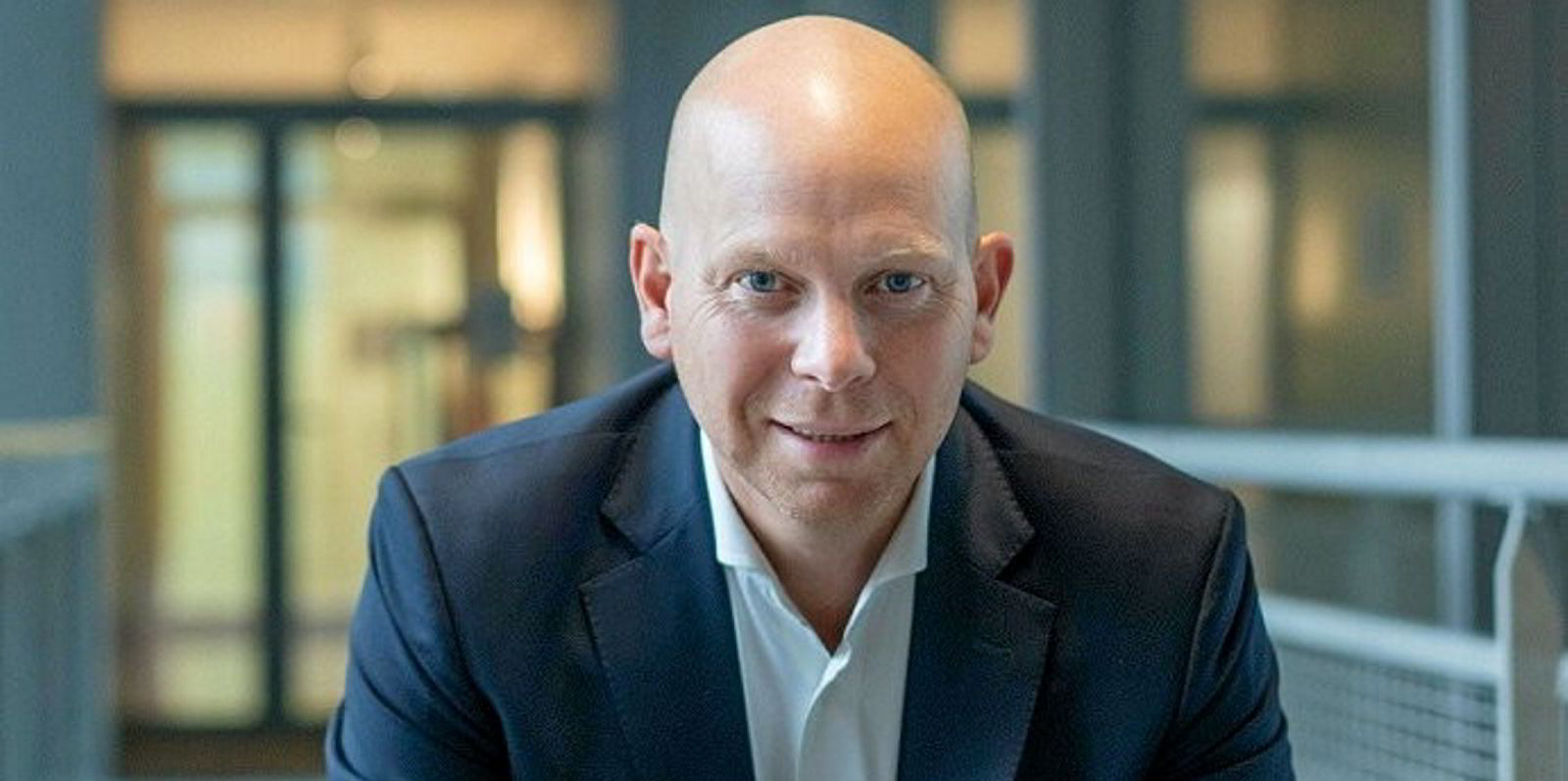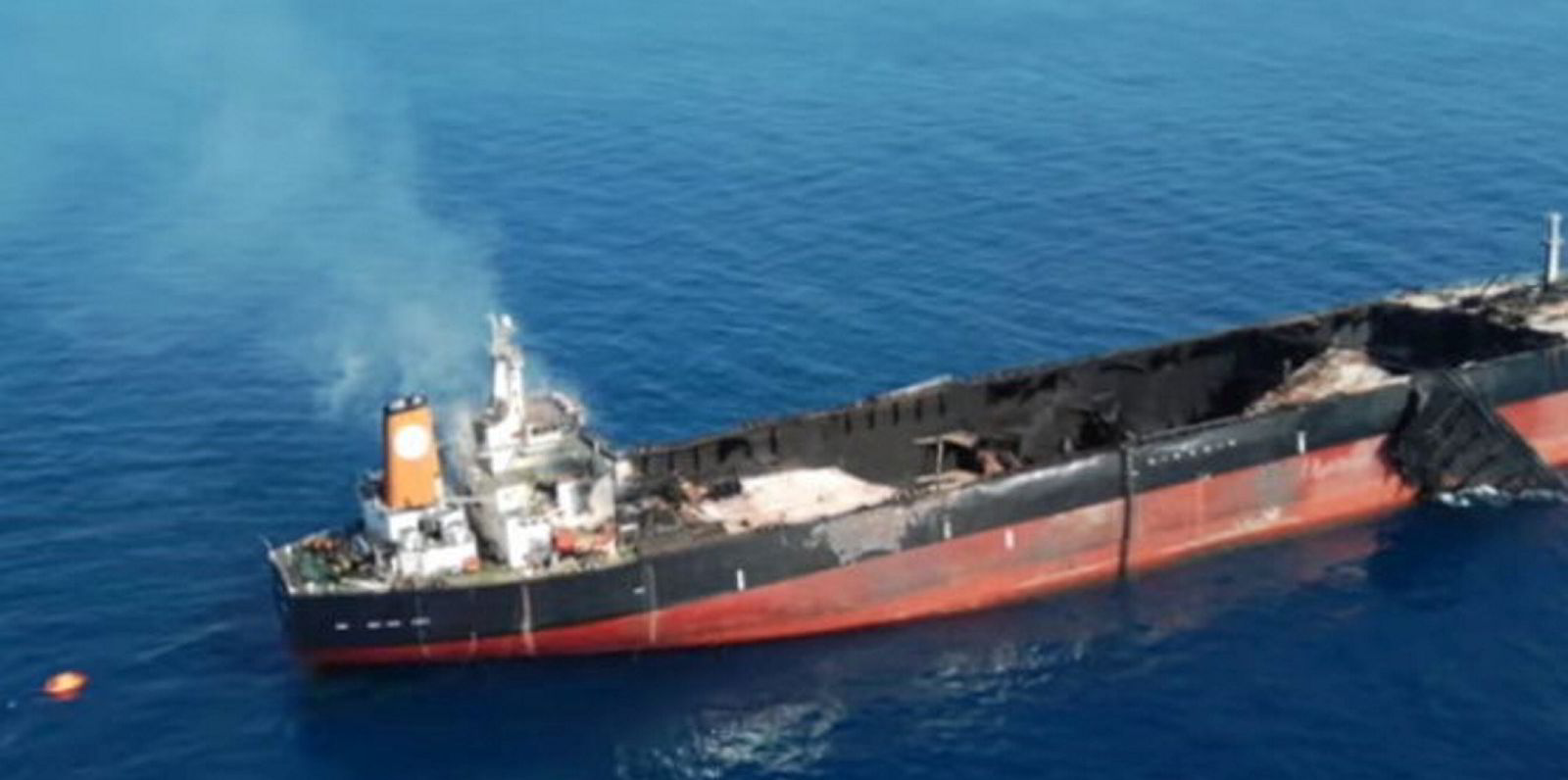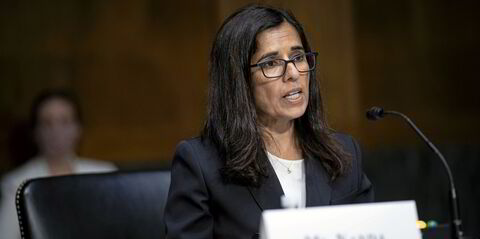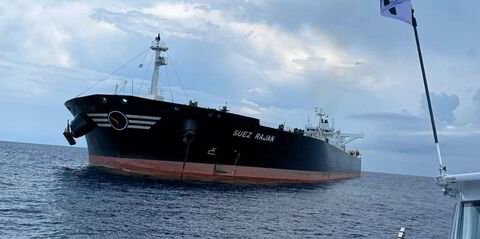Asian investors are ready to pump equity into tanker start-up Fractal as the company looks to newer ships to shift its business outside of Russian trading, said the company’s CEO Mathieu Philippe.
Philippe said that the image of the two-year-old company as a Russia-focused operation would not hamper its efforts to move into new areas and rejuvenate a 26-strong tanker fleet.
The Fractal name was not an issue but the nature of the fleet is, he told TradeWinds. He likened his operation to other shipping players who also hauled price-capped Russian oil but were able to fix other ships with oil majors.
“I’ve always admired what I call the Champions League level of Greek owners,” said Philippe, a former commercial director of Bureau Veritas.
Greek players, including George Economou’s TMS Tankers, George Procopiou’s Dynacom, the Martinos family’s Minerva Marine and Thenamaris have hauled Russian oil within the price-cap regime over the last year, according to Kpler tracking data.
Fractal has rejected claims that it is part of the grey, or shadow, fleet and said it has operated its tankers in line with US, G7 and European Union sanctions and complied with price cap rules.
TradeWinds reported on Monday that Philippe had travelled to Washington DC in November to meet with US regulators who gave assurances that his Russian-dominated trading operation was in line with US policy.
He claimed that Fractal’s establishment as a significant new player in “record time” and meeting its targets for investors, had drawn the attention of other financiers and shipping players to the project.
“We have caught the interest of other partners, other owners, financial partners, people who are ready to put in equity,” he said. He said investors were “Asian” and “various others”.
He said there were discussions about renewing the fleet. “There is appetite from our backers and our owners, and definitely from Fractal.
“We should not forget that we’re a start-up. We didn’t exist two years ago and this market is very mature.”
He said the company would seek to establish itself in new markets after a period of heightened revenues from Russian trades comes to an end. He said that the move would rely on securing newer tonnage.
‘Phenomenal’ year
The Fractal-managed vessels — ranging from MR product tankers through midsize crude carriers to a single VLCC — were all built from 2004 to 2009.
“It is very difficult to put a timing on the end of the premium attached to the Russian trade,” he said. “It will stop maybe this year, maybe in one year from now, but it will definitely come down.”
Company officials said last year they had ambitious growth plans after a “phenomenal” year but were forced to retrench after an investigation into the company’s Russian business by TradeWinds’ sister paper, Dagens Naeringsliv, in June and other reports in Switzerland increased scrutiny of the company.
Those operations included ship-to-ship oil transfers with vessels managed by Gatik Shipmanagement, the Mumbai-based company whose speed of growth after the Russian invasion outstripped even that of Fractal.
When the spotlight landed on Gatik over its suspected Russian links, financing and unknown ownership, Western providers removed registry, flag and class services. Gatik reshuffled its fleet into smaller business units in an apparent attempt to reduce regulatory scrutiny.
Philippe said the STS transfers were agreed when its protection and indemnity insurer, the American Club, also provided coverage for Gatik.
“We had some concerns, we were hesitant, but we did it because it [Gatik] was not sanctioned.
“Needless to say, the fact that American Club was on the other side gave us a lot of comfort.
“So we were every day questioning ourselves wondering should we do it or not? And we decided to do it.
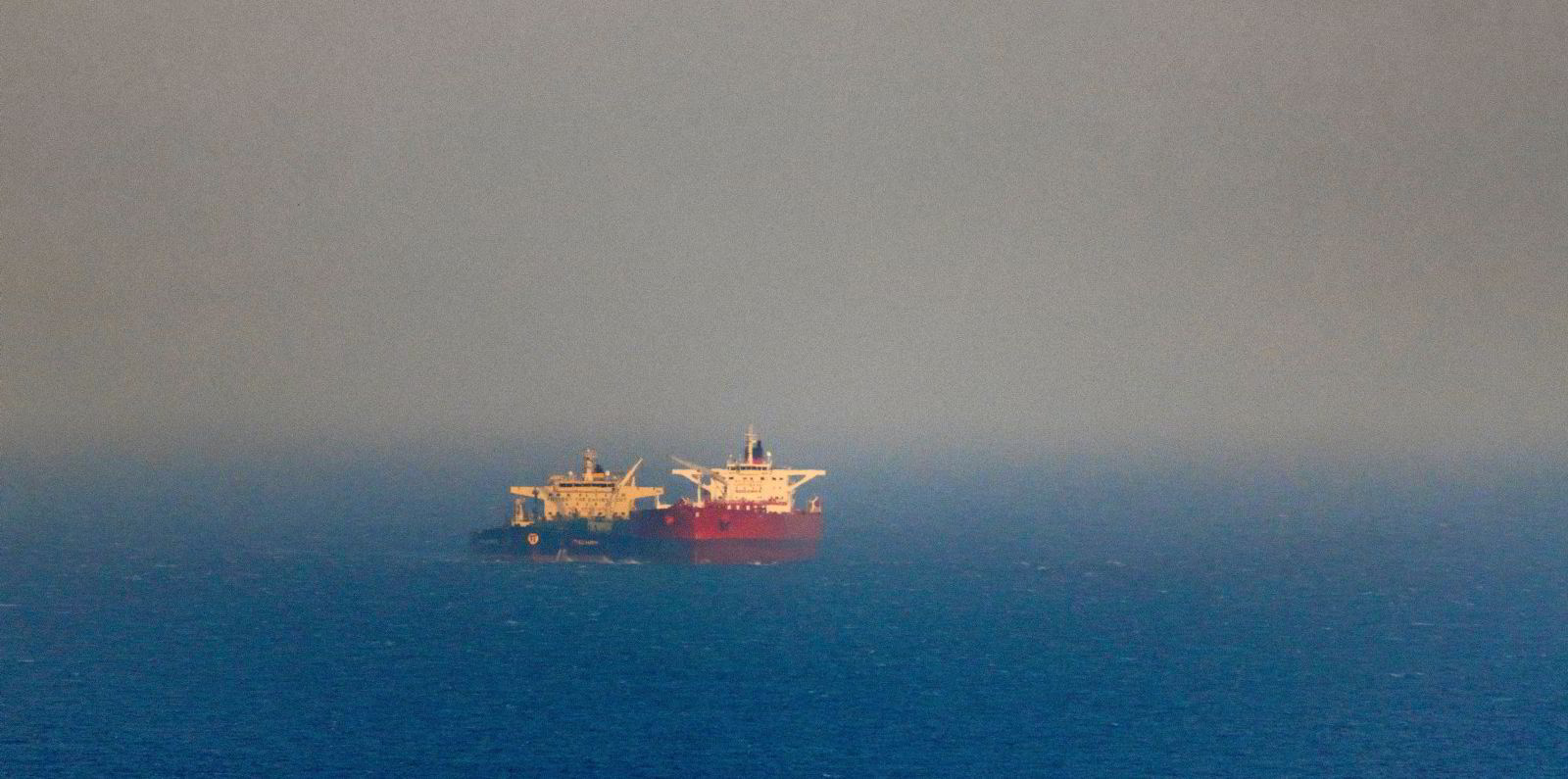
“I mean, hindsight is a beautiful tool. I don’t have it. I don’t think we could have guessed that we should not do an STS with a Gatik ship at the time, it was not possible.”
Unlike Gatik, Fractal has published details of its managed fleet that was rapidly built after the start of the invasion of Ukraine and openly operates using the Fractal name in Geneva and Dubai.
Philippe, a former Bureau Veritas commercial director with more than two decades of experience in shipping and tankers, is the ultimate beneficial owner of both.
Its backers were from Dubai with no Russian tie-ups, the company said. The company was originally set up with joint Qatari backing before they withdrew when the company changed direction.
Philippe said the company’s success has been built on trading around disruption. He cited his previous experience in persuading technical managers and owners to put armed guards on board and send ships through areas affected by Somali piracy in around 2010.
But Philippe said that he felt the main obstacle now to grasping new opportunities was the age of vessels. Newer vessels would open up opportunities, including hauling US oil. He said that one oil major had expressed interest in using one of its ships.
‘Something new’
He said the company accepted new growth would not be based on breaking into the existing tight networks of traders and oil majors so “we have to bring something new”.
He said that could be around being smart on environmental regulations and likened it to potential opportunities on offer with the right choice of new fuel.
He predicted a “very, very bright” future. The company was looking to maintain a fleet in all tanker sectors, clean and dirty, from MRs to VLCCs, with a strong tanker market forecast for several years.
“We will not find a miracle, we will not reinvent the wheel, we will not find the secret. But we can find an angle if we are strong enough as a team and manage to increase our level of expertise,” he said.
“For the time being, we are chartering ships on the spot [market] in a very traditional way. I’d like to think that we can bring something else.”
Tomorrow: Dubai, dark fleets and the new Geneva
Read more
- Insurers hike war risk rates following Red Sea attacks on US and Greek-owned ships
- Northern Sea Route crossings dominated by crude oil cargoes last year
- Cyber attacks: Are shipowners a richer catch than their vessels for hackers?
- Qatari and Russian-controlled LNG carriers become lone Red Sea movers
- Fires, collisions and oil spills: 50 tanker incidents shine a light on shadow fleet risk
